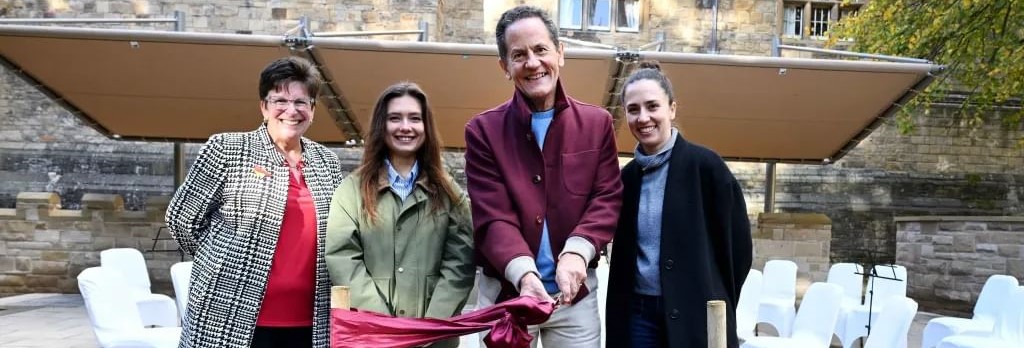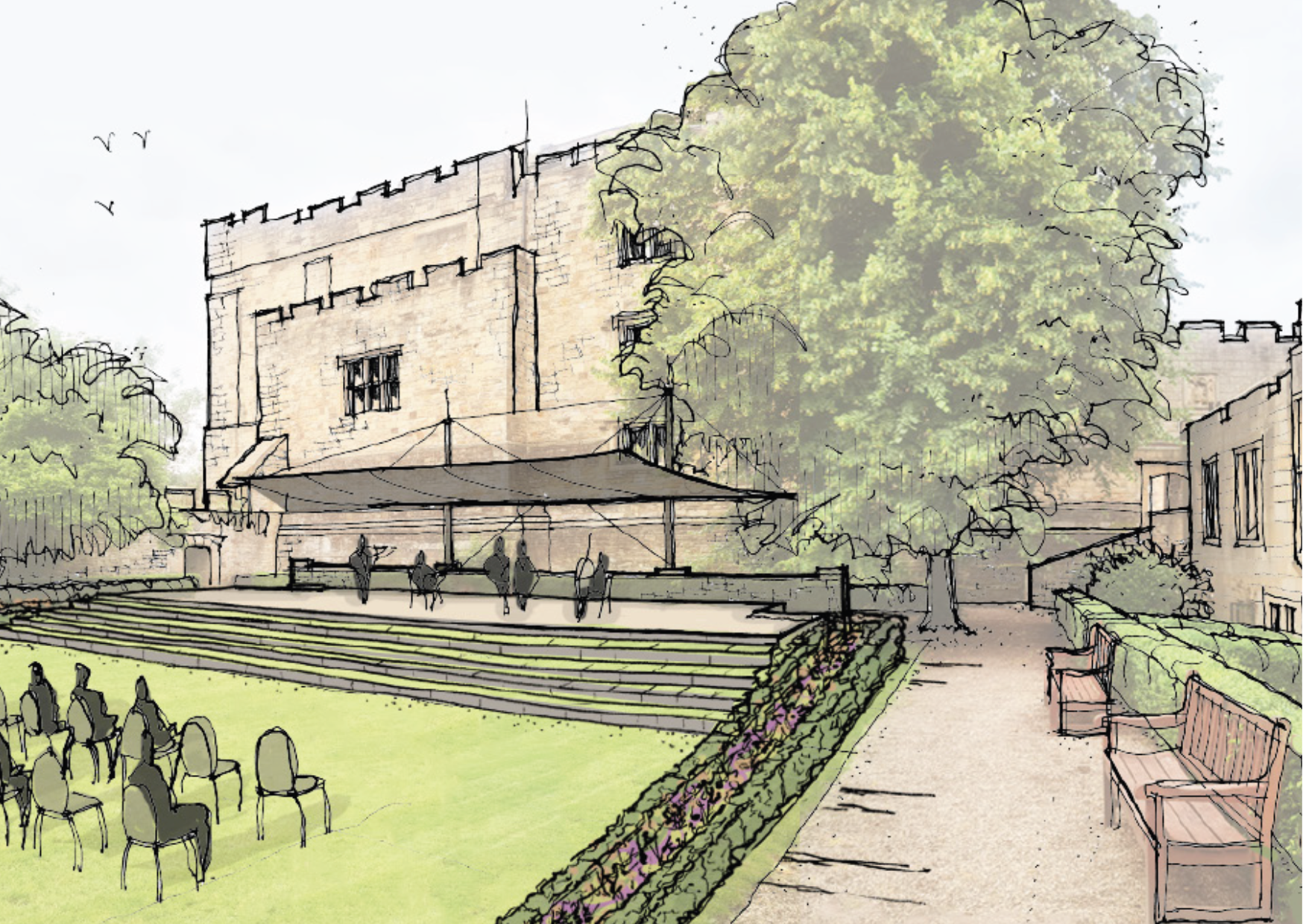Fellows' Garden Grand Re-Opening
On 22 October we welcomed alumni, donors, friends of the College and community partners to mark the redevelopment of Fellows' Garden.
The opening featured the première of Begin Again, by Castle postgraduate Shambhavi Sharma, set to music by Chris Massa and performed with panache by the Chapel Choir and Castle Orchestra.
You can see photos from the event here: FELLOWS' GARDEN OPENING by Durham University Alumni Relations - Issuu

Begin Again
See highlights from the Re-opening event including the première of student-composed piece Begin Again.
Fellows' Garden
-1050x350.jpg)
Work has begun to redevelop the Fellows’ Garden at University College to revitalise its purpose as an accessible outdoor space enabling student and community wellbeing and enrichment.
After some five years of concept development working with Durham County Council, the beautiful yet underutilised Fellows’ Garden is undergoing a metamorphosis.
The Garden is located within University College on the historic Palace Green, a UNESCO World Heritage site in Durham City centre. While it is already used as a space for student and community wellbeing and enrichment, the redevelopments will allow it to be renewed and enhanced for the benefit of all students, staff, members of our local community, and visitors from around the world.
As well as providing a space to connect with nature in the midst of the bustling City centre, the Fellows’ Garden will offer improved facilities for the staging of music and theatre productions from both student and local performing arts societies. It will allow the College to make the most of the limited space on Durham’s Bailey. It will also provide a valuable opportunity to make the Castle more widely accessible.
We are immensely grateful to our alumni donors who have made this project possible.
Tour the Fellows' Garden with our Principal
Take a stroll around Fellows' Garden with our Principal, Wendy, and learn more about the project plans.
About Fellows' Garden

The reimagined Fellows' Garden is a purpose-built performance venue for plays and concerts, with student enrichment at its heart.
Featuring:
- Permanent all weather raised stage
- Integrated lighting and audio capabilities
- Capacity for audiences of up to 100 people
- Lift access from the barbican
- Accessible toilet facilities
- Paved walkways & hardwood bench seats
- Artwork and interpretation features
- Preservation of all mature trees
- Heritage appropriate plantings
The design has created a stepped landscape to a terrace, which will have multiple uses. The position of the terrace has been carefully considered with the backdrop of the Castle, positioned to the north of the site, ensuring the optimal lighting conditions for ceremonies, with the suns glare being behind the audience not interrupting the view of the terrace.
History of the Garden
The site of Fellows’ Garden is situated within the grounds of Durham Castle, Durham, In the North East of England. Durham is a UNESCO world heritage site, Sitting on the banks of the River Wear. The site also sits within the Durham Conservation area.
The Garden has been previously known as both Fellows’ Garden and Bishops’ Garden. University College began to occupy the Castle in 1837; since then the garden has been known as both the Don’s and more recently, as Fellows’ Garden. In the 19th and early 20th century, this was a private space for the Fellows’ and later the SCR. The Garden began to be opened and used more for special students events from the 1950s onwards. From the 2000s, the space started to be used for the wider student community and then for events, performances, concerts, and more recently for community days.
Partners
Work on the Fellows’ Garden has been developed by Howarth Litchfield, Colour urban design and landscape architecture practice, and Adelphi Engineering, with constructions works led by Historic Property Restoration Ltd in partnership with University College, Durham University, and Durham County Council.
.png)
Student involvement in the project
Working with students is at the heart of life at University College, and this project is no different. As part of the redevelopment of Fellows' Garden, we are appointing a student intern to develop a documentary film of the works and the garden, in creative response to the project.
We are also commissioning an exciting piece of student music, composed by a Castle student, which will be performed at the official opening in the Autumn.
We are also keenly aware of the impact that the works have on our current students in residence, and have found alternative venues for activities which usually take place in Fellows' Garden including wellbeing walks, destress-dogs, theatre performances and social events. Students whose bedrooms overlook the garden will be offered alternative study spaces during exams.
Update on the works (3 October)
With just one more month of works to go, our reimagined Fellows’ Garden is nearly completed! Final works over the new few weeks include:
- Completing the new accessible toilet
- Finishing the landscaping
- Final stone works to the terrace
- Installation of the new wayfinding, interpretation and donor recognition signage
- Installation of the lift and completion of the new fire escape
- Remedial paving works smoothing the ramp from the barbican to the lift
Our public grand opening will be 22 October and shortly thereafter we’ll celebrate together as a college. Works are due to be fully completed by 29 October.


/prod01/prodbucket01/media/durham-university/colleges/university-college-castle/86545.jpg)
